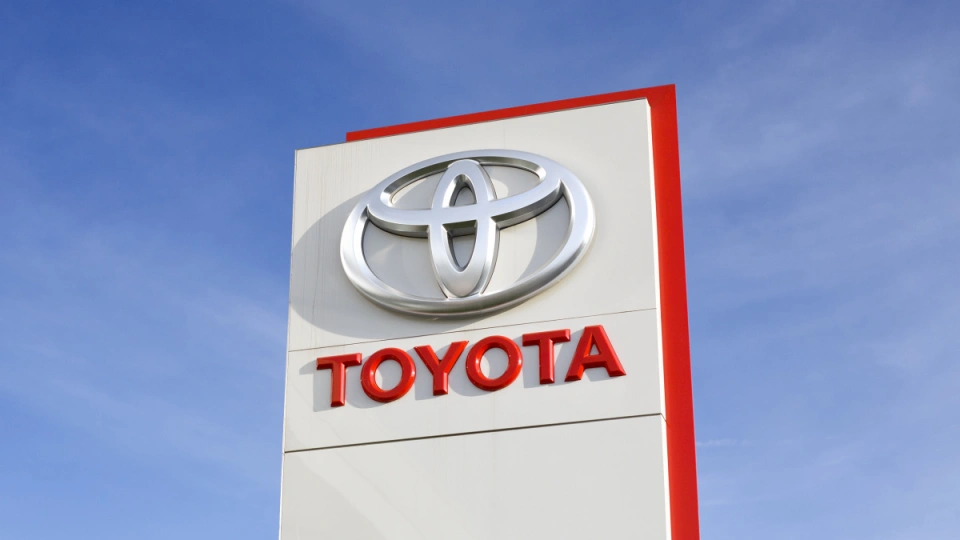Toyota is a Japanese multinational automotive manufacturer that is widely considered one of the world’s largest and most successful car companies. The company was founded in 1937 by Kiichiro Toyoda, the son of a textile manufacturer who had become interested in the emerging automobile industry.
Initially, Toyota was a division of the Toyoda Automatic Loom Works company, which had been founded by Kiichiro’s father Sakichi Toyoda. Kiichiro had traveled to the United States in the 1920s to study automobile manufacturing, and upon his return, he began to experiment with building his own cars. He eventually convinced his father to invest in a new company that would focus solely on automobile production, and Toyota Motor Company was born.
In its early years, Toyota faced many challenges as it worked to establish itself as a major player in the global automotive industry. However, the company quickly gained a reputation for innovation and quality, and by the 1960s, it had become one of Japan’s leading car makers.
Toyota’s business model is based on producing high-quality, reliable vehicles at affordable prices. The company has a strong focus on research and development, and it invests heavily in new technologies to improve the performance and safety of its cars. In addition to manufacturing passenger cars, Toyota also produces commercial vehicles, trucks, and buses.
Over the years, Toyota has become known for its commitment to continuous improvement and its innovative production methods. The company’s “Toyota Production System,” which emphasizes efficiency and waste reduction, has been studied and emulated by businesses around the world.
Today, Toyota is a global brand with operations in more than 170 countries. It is the world’s largest automotive manufacturer by production volume, and it is consistently ranked among the most valuable and influential brands in the world. The company has also diversified into other areas such as robotics, renewable energy, and healthcare, continuing its tradition of innovation and growth.
Founding History of Toyota Motor Company
Toyota has a rich founding history that is rooted in the innovation and entrepreneurial spirit of its founder, Sakichi Toyoda, and his son, Kiichiro Toyoda. The company’s origins can be traced back to the Toyoda Automatic Loom Works, which was founded by Sakichi in 1926. Sakichi was a prolific inventor who is credited with developing a series of automatic looms that revolutionized the textile industry.
In the 1920s, Kiichiro became interested in the emerging automobile industry and traveled to the United States to study automobile manufacturing and assembly line techniques. He was impressed by the efficiency and speed of American car factories, and he became convinced that he could adapt these methods to the Japanese market.
After returning to Japan, Kiichiro began experimenting with building his own cars. In 1933, he established the Toyoda Automatic Loom Works Automobile Department, which later became Toyota Motor Company. The name was changed from “Toyoda” to “Toyota” because the latter was considered to have better visual balance in the Japanese language.
One of Toyota’s founding principles was the “Toyota Production System,” which is based on the concept of “just-in-time” production and “kaizen,” or continuous improvement. The Toyota Production System focuses on reducing waste and increasing efficiency by minimizing inventory, improving quality, and empowering workers to identify and solve problems.

Toyota faced many challenges in its early years, including limited resources, a lack of infrastructure, and Japan’s lack of reputation in the auto manufacturing industry. However, the company’s commitment to innovation and quality helped it overcome these obstacles. In the years leading up to World War II, the company focused on developing small cars that were affordable and fuel-efficient, and it quickly gained a reputation for reliability and durability.
After the war, Toyota began to expand its operations and explore new markets. In the 1950s, the company began exporting its cars to the United States, and it soon became a major player in the global automotive industry. In the 1960s, Toyota introduced its first luxury brand, the Toyota Crown, which helped the company cement its position as a premium car maker.
Today, Toyota is a global brand with operations in more than 170 countries. The company has continued to innovate and expand into new markets, and it is consistently ranked among the world’s largest and most successful automakers. Its founding principles of innovation, quality, and efficiency continue to guide the company as it looks to the future.
Financials of Toyota over years
Toyota has been a leading automotive manufacturer for many years, with a long history of financial success. Here is a brief overview of Toyota’s financials over the years:
Revenue: Toyota’s revenue has increased steadily over the years. In 2021, Toyota’s revenue was $276.57 billion, an increase of 6.1% from 2020.
Net income: Toyota’s net income has also increased steadily over the years. In 2021, Toyota’s net income was $22.9 billion, an increase of 12.2% from 2020.
Operating income: Toyota’s operating income has also increased steadily over the years. In 2021, Toyota’s operating income was $29.5 billion, an increase of 10.5% from 2020.
Free cash flow: Toyota’s free cash flow has also increased steadily over the years. In 2021, Toyota’s free cash flow was $25.7 billion, an increase of 12.2% from 2020.
Toyota’s financials have been strong in recent years. The company has been able to increase its revenue, net income, operating income, and free cash flow. This is due to a number of factors, including the increasing demand for Toyota vehicles, the company’s focus on efficiency, and its strong brand reputation.
Toyota is a financially strong company. The company has a strong balance sheet and a healthy cash flow. This gives Toyota the financial resources to invest in new products, expand its operations, and return capital to shareholders.
Here are some of the key factors that have contributed to Toyota’s strong financial performance:
- Product lineup: Toyota has a strong product lineup that appeals to a wide range of customers. The company offers a variety of vehicles, including cars, SUVs, trucks, and hybrids.
- Brand reputation: Toyota has a strong brand reputation for quality, reliability, and fuel efficiency. This reputation helps Toyota to attract new customers and retain existing ones.
- Efficiency: Toyota is a very efficient company. The company has a number of initiatives in place to reduce costs and improve productivity.
- Global reach: Toyota is a global company with operations in over 200 countries. This gives Toyota access to a large and growing market.
Toyota is a well-managed company with a strong financial position. The company is well-positioned for future growth.
Innovation of Toyota Motor Co
Toyota has a long history of innovation in the automotive industry, with a focus on developing new technologies and processes to improve efficiency, safety, and sustainability. Here are some examples of Toyota’s innovations:
Hybrid technology: Toyota was one of the first automakers to introduce hybrid technology, which combines an electric motor with a gasoline engine to improve fuel efficiency and reduce emissions. The company introduced the first Prius hybrid vehicle in 1997, and has since developed a range of hybrid models across its lineup.
Lean production: Toyota is known for its “lean production” system, which is designed to minimize waste and improve efficiency in manufacturing. This approach involves continuous improvement and a focus on eliminating “muda,” or waste, in all aspects of the production process.
Safety features: Toyota has developed a range of safety features to protect drivers and passengers, including its “Safety Sense” suite of advanced driver assistance systems. These features use cameras, radar, and other sensors to detect potential hazards and assist drivers in avoiding collisions.
Hydrogen fuel cell technology: Toyota has been a leader in the development of hydrogen fuel cell technology, which uses hydrogen to generate electricity and produces only water as a byproduct. The company introduced the Mirai fuel cell vehicle in 2014, and is working to expand the use of this technology in other applications.
Mobility services: Toyota is exploring new mobility services and business models, including ride-sharing, car-sharing, and other on-demand services. The company has launched several initiatives in this area, including its partnership with Uber and the development of its own mobility brand, Kinto.
Overall, Toyota’s focus on innovation has helped it to stay ahead of the curve in the competitive automotive industry. By continually pushing the boundaries of what is possible, the company has been able to develop new technologies and processes that improve safety, efficiency, and sustainability, while also meeting the changing needs of consumers.
Strategy of Toyota that makes it so successful
Toyota’s strategy can be summarized as a focus on quality, innovation, and efficiency, with an emphasis on sustainable growth and customer satisfaction. Here are some key elements of Toyota’s strategy:
Continuous improvement: Toyota’s philosophy of “kaizen” emphasizes the importance of continuous improvement in all aspects of the business. This approach involves identifying and eliminating waste, improving efficiency, and constantly striving for excellence.
Customer-centric approach: Toyota’s focus on customer satisfaction has helped the company to build strong brand loyalty and reputation. The company places a high value on customer feedback and works to develop products and services that meet their needs and preferences.
Quality control: Toyota is known for its rigorous quality control processes, which help to ensure that every product meets the company’s high standards. This focus on quality has helped to build trust and confidence among customers, and has helped to differentiate Toyota from its competitors.
Innovation: As discussed in the previous answer, Toyota has a strong history of innovation in the automotive industry. The company continues to invest heavily in research and development to develop new technologies and products that improve safety, efficiency, and sustainability.
Global presence: Toyota has a strong global presence, with operations in more than 170 countries and regions around the world. This global footprint helps the company to capture new markets and respond to changing consumer preferences and market conditions.
Sustainability: Toyota has made a commitment to sustainability, with a focus on reducing environmental impact and promoting social responsibility. The company has developed a range of eco-friendly technologies, such as hybrid and fuel cell vehicles, and has set ambitious targets for reducing carbon emissions and waste.
Lean manufacturing: Toyota is widely credited with developing the concept of “lean manufacturing,” which involves the elimination of waste and the optimization of production processes. The company’s production system, known as the Toyota Production System (TPS), is based on the principles of “just-in-time” manufacturing and “kaizen” (continuous improvement).
Partnership with suppliers: Toyota works closely with its suppliers to improve quality, reduce costs, and optimize production processes. The company maintains long-term relationships with its suppliers and provides them with support and training to help them improve their own processes.
Investment in research and development: Toyota invests heavily in research and development, with a focus on developing new technologies and products that improve safety, efficiency, and sustainability. The company has established research centers around the world and collaborates with universities and other research institutions.
Diversification: Toyota has diversified its product offerings to include not only cars and trucks, but also motorcycles, boats, and other products. This diversification helps the company to capture new markets and reduce its reliance on any single product line.
Marketing and branding: Toyota has invested heavily in marketing and branding to build a strong global reputation and increase brand awareness. The company’s “Moving Forward” campaign, launched in 2012, emphasizes Toyota’s commitment to innovation, sustainability, and social responsibility.
Focus on emerging markets: Toyota has a strong presence in emerging markets such as China, India, and Southeast Asia, where demand for cars and trucks is growing rapidly. The company has developed products and services tailored to these markets and has invested in local manufacturing facilities to better serve customers in these regions.
These elements of Toyota’s strategy have helped the company to achieve sustained growth and profitability over the years. By focusing on quality, efficiency, and innovation, and by investing in research and development, marketing and branding, and emerging markets, Toyota has been able to maintain its position as a leader in the automotive industry.
Also Read: Honda Rise to the Top: A Story of Persistence and Ingenuity
Marketing Strategies of Toyota
Here are some of the marketing strategies used by Toyota:
Product differentiation: Toyota has a wide range of products that are differentiated based on various factors such as price, features, fuel efficiency, and design. The company offers different models that cater to different segments of the market, such as the budget-conscious consumer, luxury buyers, and those looking for hybrid or electric vehicles.
Toyota has a diversified product portfolio, ranging from sedans, hatchbacks, SUVs, and trucks, to cater to different segments of the market. This helps the company to target a wider audience and attract customers from different demographics.
Advertising: Toyota invests heavily in advertising to build brand awareness and drive sales. The company’s advertising campaigns typically focus on the reliability, durability, and quality of Toyota vehicles. These ads are targeted at different demographics, including families, young professionals, and environmentally conscious consumers.
Sponsorship and partnerships: Toyota sponsors sports teams and events, music festivals, and other cultural events to create brand awareness and build positive associations with its products. For example, Toyota is a sponsor of the Olympics and Paralympics, and has been a partner of the National Football League (NFL) in the US. The company also hosts several events and campaigns to engage with customers, such as Toyota Dream Car Art Contest, Toyota Music Den, and Toyota Teen Driver Program.
Customer engagement: Toyota engages with customers through social media, customer loyalty programs, and other initiatives to build brand loyalty and advocacy. For example, the company has launched the “Toyota Owners” program, which provides benefits such as discounts on services and parts, and a mobile app that allows customers to schedule appointments and receive notifications about recalls and service updates.
Digital marketing: Toyota uses digital marketing channels such as search engine optimization (SEO), social media advertising, and email marketing to reach customers online. The company has developed a strong online presence, with a website that provides information on its products, services, and initiatives, as well as online configurators that allow customers to build and customize their own vehicles.
Toyota has leveraged social media platforms like Facebook, Twitter, Instagram, and YouTube to reach out to its customers and promote its products. The company uses a mix of paid and organic social media marketing strategies, including sponsored posts, influencer collaborations, and engaging content to create brand awareness and drive customer engagement.
Personalization: Toyota offers personalized experiences to customers, such as customized emails and special offers based on their purchase history and preferences. This helps to build brand loyalty and encourages repeat purchases.
Environmental sustainability: Toyota’s marketing strategy also focuses on promoting its environmental sustainability initiatives, such as the development of hybrid and electric vehicles and reducing carbon emissions. The company’s marketing messages highlight its commitment to sustainability, which is an important consideration for many customers in today’s eco-conscious world.
These marketing strategies have helped Toyota to build a strong global brand and maintain a strong presence in the automotive market. By differentiating its products, investing in advertising and sponsorship, engaging with customers, and leveraging digital marketing channels, Toyota has been able to connect with customers and build lasting relationships.
To read more content like this, subscribe to our newsletter




